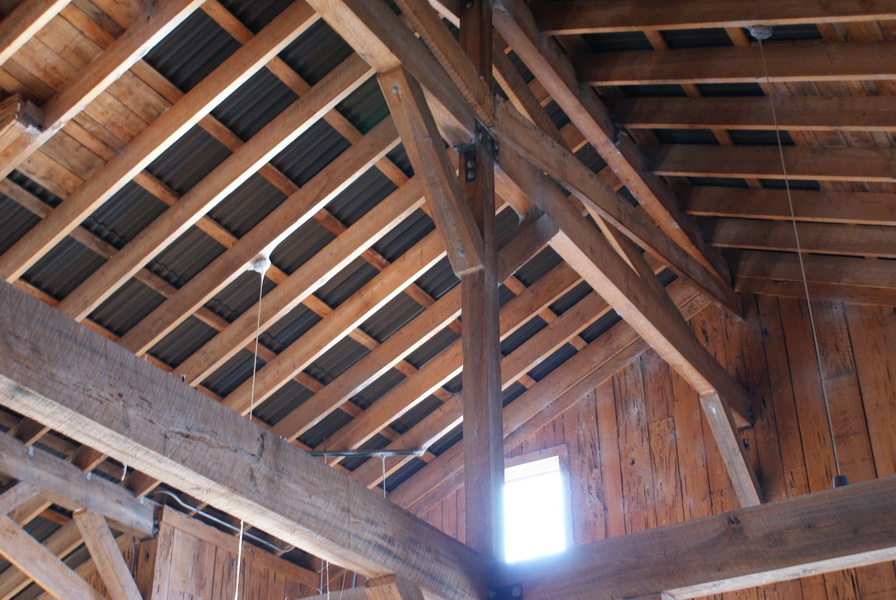Join us in a discussion of various inspection related topics.

Learning About Water Softeners
Water softeners are a very necessary appliance in some parts of the country where the water is “hard”. In these places water softeners are a common occurrence. Around the Charleston Lowcountry area…. not so much. However we do see water softeners occasionally and sometimes well observe a system someone might mistake for a water softener. In spite of the fact
Understanding Plumbing Venting Methods
Without getting into too much detail this article will try to take the mystery out of the different ways plumbers can vent your plumbing system. If you’ve ever noticed the plumbing pipes sticking through the roof you probably knew they were there to vent the plumbing drain piping. While most people understand how an individual vent works the rest can
About The RV Receptacle Outlet
It seems that Recreational Vehicles are becoming more and more popular and so there is increasingly the presence of an RV receptacle or multi receptacle RV box located somewhere on the property. Sometimes it’s in the middle of a field. Because the RV receptacle is different than other receptacles that we find in the typical home I wanted to spend
Cables and Conduits
The types of wiring systems in homes have evolved over time so this article will not discuss all those types that we sometimes find in old homes. Nor are we going to cover every type of wiring system in use today. That’ll be too big a topic. Instead we’re going to focus on the most common wiring types used
Sump pumps and sewage pumps
Both sump pumps and sanitary sewage pumps sit inside a pit and pump out fluids in a similar way but they function in very different ways and serve very different functions. One source of confusion is that the words sewer and sewage can be applied in very different ways. In this article we’re going to try to precede these terms
What are weep holes?
Weep holes are the little gaps in brickwork near the bottom that allows moisture to escape from the wall cavity. They’re required to be spaced 33″ apart right above the flashing. They also help to equalize air pressure and dry the wall cavity out. Some vinyl windows also have weep holes to dry out the inside cavity that may be
Building Decks Right
Because decks are often added on sometime after original construction they are not always built in an optimum way. This article will discuss some of the most common deck building mistakes and some possible ways to correct the issues. Decks should be built to the same standard as the home. If done correctly they should last a long time. Common
Understanding Wind Zone Requirements
In this discussion we’re going try to take the mystery out of understanding wind zone requirements. In today’s world almost every structure has to be built to certain standards. One of these standards is that the home has to be built to resist uplift or shear forces from a strong wind like a hurricane for instance. Well it turns out
Flashing Windows with integral J channel
This article is about houses with windows which have built in j-channel. This style of window is popular among builders because it negates the need for purchasing j channel as these window have the J channel built in. However, in the opinion of this inspector this type of window has a design flaw that necessitates installing flashing in a
Fireplace and Chimney Safety
When your home inspector notes a deficiency in your chimney or fireplace it is very important to get a qualified fireplace professional or certified chimney sweep to evaluate and make repairs. Fireplaces and chimneys are complex and it takes special training and knowledge to build and maintain them. This discussion will describe the most common types of wood burning fireplaces
What is Knob and Tube Wiring?
Knob and Tube wiring is a method of wiring that was popular from about 1890 to 1940. Characterized by the ceramic knobs that held the conductors away from the joists and ceramic tubes that the conductors ran through when it had to pass through a joist or wall plate.
Understanding Solar PV Systems
Solar photovoltaic (PV) systems work by collecting sunlight onto specially designed panels which produce DC current. This current is transferred to an inverter which converts it to AC current to match our home electrical system. Since these systems are becoming more and more popular it’s important to gain an understanding of how theses systems work and are connected together
What is a Multi-wire branch circuit?
Most people are familiar with how a regular 120 volt circuit is constructed (a hot, a neutral and a grounding conductor). Some may even understand how a 240 volt circuit operates (two hots, a neutral and a grounding conductor). But what the heck is a multi-wire branch circuit? Well, a multi-wire branch circuit is kind of a cross between
Understanding Feeder Taps
In this article I want to clear up some confusion about a wiring method home inspectors sometimes encounter and which sometimes even some electricians don’t thoroughly understand. I’m talking about section 240.21(B) of the NEC (National Electrical Code) which discusses Feeder Taps. While most people understand that overcurrent protection is typically required at the point where the conductors receive

Hello!
Good cheer to all on this beautiful day!!!!!
Good luck 🙂
Hello! I hope you’re having a great day. Good luck 🙂